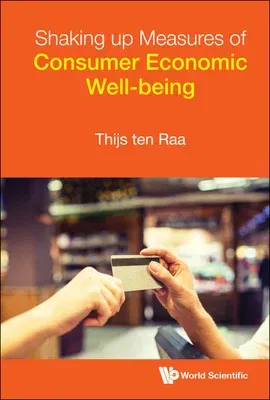Thijs Ten Raa
(Author)Shaking up Measures of Consumer Economic Well-beingHardcover, 21 April 2022

Qty
1
Turbo
Ships in 2 - 3 days
Only 5 left
Free Delivery
Cash on Delivery
15 Days
Free Returns
Secure Checkout

Print Length
132 pages
Language
English
Publisher
World Scientific Publishing Company
Date Published
21 Apr 2022
ISBN-10
9811249784
ISBN-13
9789811249785
Description
Product Details
Author:
Book Format:
Hardcover
Country of Origin:
SG
Date Published:
21 April 2022
Dimensions:
22.86 x
15.24 x
0.97 cm
ISBN-10:
9811249784
ISBN-13:
9789811249785
Language:
English
Pages:
132
Publisher:
Weight:
344.73 gm